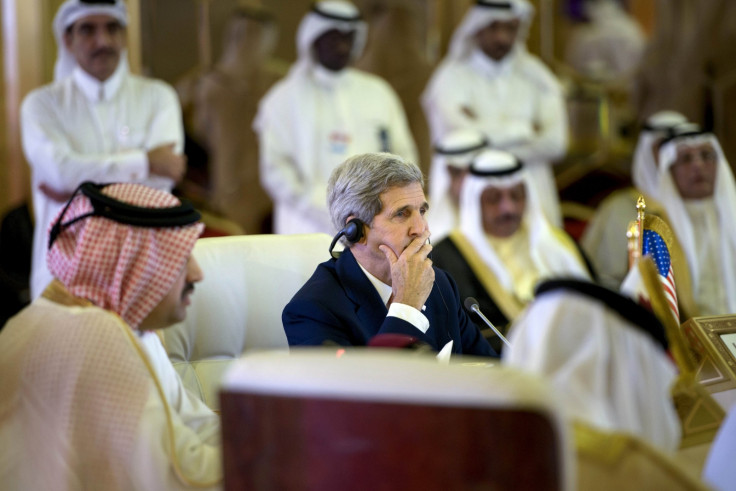Israel isolated as Arab nations rally behind John Kerry over Iran nuclear deal

Arab nations that were sceptical of the Iran nuclear agreement have come aboard in support of the deal, leaving Israel as the only nation in the Middle East to oppose it.
Subsequent to John Kerry's meeting with the Persian Gulf Arab states in Doha, Qatar, member states of the Gulf Cooperation Council (GCC) explicitly expressed that they back the deal.
"This was the best option among other options — to come up with a solution. . . through dialogue. We are confident that all the efforts that have been exerted make this region very secure, very stable," said Qatari foreign minister Khalid bin Mohammed al-Attiyah, who heads the GCC comprising Sunni-dominated states of Bahrain, Qatar, Oman, UAE, Kuwait, and Saudi Arabia.
He added: "Kerry let us know that there is going to be live oversight over Iran not to gain or to get any nuclear weapons. This is reassuring to the region."
Kerry met the emir of Qatar prior to his talks with other senior officials of Arab Gulf states as part of Washington's diplomatic outreach in selling the landmark agreement. The GCC's unequivocal support is also expected to help the Obama administration in its attempts to push through the Congress, which has 60 days to review the deal.
Speaking at a news conference after the talks, Kerry said that GCC members expressing their consent to the Iran nuclear accord "contributes to the region's long-term security".
He insisted the deal "was not based on any expectation about what Iran will or won't choose to do".
Shortly after Kerry's visit, the US and GCC issued a joint statement which read: "The United States reiterated its commitment to working with the GCC to prevent and deter external threats and aggression. In the event of such aggression or the threat of such aggression, the United States stands ready to work with our GCC partners to determine urgently what action may be appropriate, using the means at our collective disposal, including the potential use of military force, for the defence of our GCC partners."
In July, Iran and P5+1 powers – the US, Britain, China, Russia, France, and Germany – signed a comprehensive deal in Vienna when Tehran agreed to limit its nuclear activities in exchange for the gradual removal of economic sanctions.
© Copyright IBTimes 2025. All rights reserved.





















